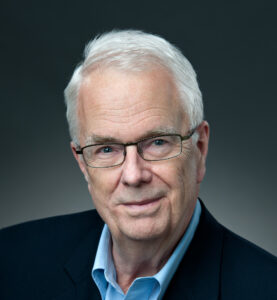
A. John Rush, MD is presently Adjunct Professor, Department of Psychiatry and Behavioral Sciences, Duke Medical School, Durham, NC and Professor Emeritus at the National University of Singapore. His work has focused on the diagnosis and psychotherapeutic, psychopharmacological, and somatic treatments of depression and other mood disorders. As author of 10 books and over 800 journal articles, his internationally recognized work has received numerous awards. Most recently, his research has focused on longer-term disease management programs, including multistep treatment algorithms for bipolar and major depressive disorders.
During and following his psychiatric residency at the University of Pennsylvania, he worked with Dr. Aaron T. Beck to create the first book to guide the formulation and treatment of depressed patients based on the cognitive model as illustrated in the bestselling book Cognitive Therapy of Depression (Beck, Rush, Shaw & Emery, 1987). He led the first randomized controlled trial of Cognitive Therapy in 1975. Subsequently, he helped to develop Cognitive Therapy for depressed adolescents (with Chris Wilkes and others) and adults with bipolar disorder (with Monica Basco). The following article is written by Dr. Rush.
Dr. Aaron (Tim) Beck was my mentor and colleague, but most importantly, my friend. We met in 1973, early in my residency. He was demonstrating CBT techniques behind a one-way mirror. At that time psychoanalytic psychotherapy was the predominant form, and it necessitated a relatively passive role by the therapist, in order not to intrude into the patient’s desire to look within, and to identify motivations/historical factors/interpersonal habits that lead to their current situation. While not every patient was lying on the couch, the therapist was to be carefully choosing selected words to provide insight to the patient about how their relationship with their therapist perhaps reflected relationships with other authority figures in their past, to create a recognition of how they had incorrectly transferred prior experiences on to current situation, thereby causing their dilemma.
On the other side of the mirror, Dr. Beck was doing everything I was told not to do. He had the patient sitting up, conversing and looking eye to eye. He was asking probing questions about specific thinking patterns and emotional responses. He was assigning homework. I have been taught that all these intrusive behaviors would obstruct therapeutic progress, yet he seemingly thought the contrary. This demonstration was the first of many times that I learned from Dr. Beck.
I’ve gathered ten lessons that I learned from Tim over the years. Though I cannot pay them back, I can pay them forward.
- Be forever curious. Never assume you have the answer. Learn by asking questions.
- Challenge conventional wisdom. Just because a lot of people believe it does not make it true.
- Get the evidence. Opinion is cheap.
- Listen to the patient, not just the theory.
- Consider multiple perspectives. More than one could be true.
- Collaborate. Everyone can be a teacher.
- Think carefully, not superficially.
- Share the spotlight.
- As a mentor, share your humanity.
- Invest in others’ careers.
These lessons helped me and continue to help others. Carrying on his legacy is simpler than we might think.
Perhaps the most memorable of the many meetings with Dr. Beck was after I and my fellow resident, Manoochehr Khatami, had successfully treated several depressed patients under his supervision. With the enthusiasm of a third-year resident, I said something like this: “We should see if this really works!” Rather inappropriate for such a junior. He rapidly responded, “You’re right! How do we do that?” to which I glibly responded, “a randomized controlled trial!” To my shock, he agreed! He was willing- even eager- to put to the test his 20+ years of patient work and his own theoretical model with no certainty of outcome. And to let a young, rather impertinent trainee take lead in this effort. Wow!
Cognitive Therapy is about testing your assumptions and beliefs and letting the evidence speak. He put that into action in a way that many would not dare. I keep Tim’s memory close by living by these truths and will always consider him my scientific and professional hero.
I look forward to celebrating the first Aaron T. Beck Day, and each one to come.
A. John Rush, MD